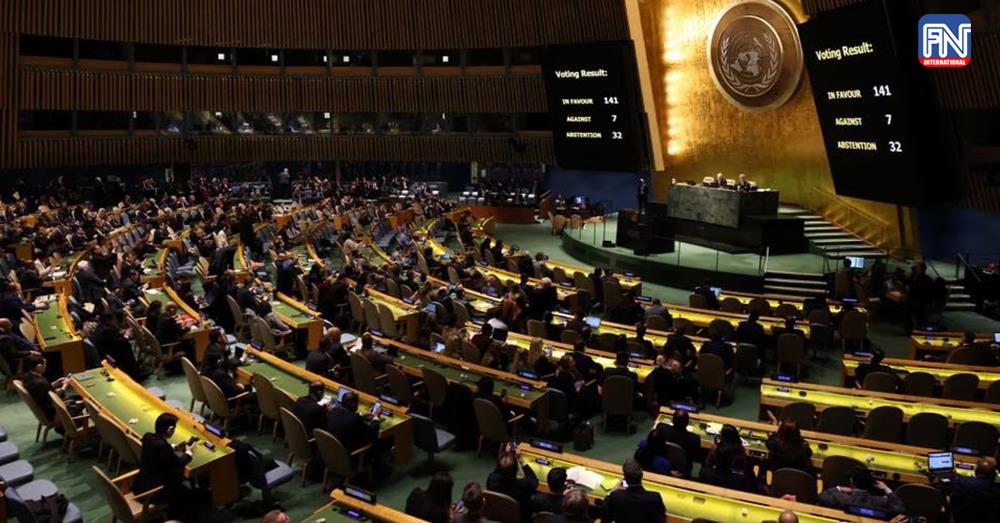UNITED NATIONS, Feb 23 (Reuters) - The United Nations overwhelmingly isolated Russia on Thursday, marking one year since Moscow invaded Ukraine by calling for a "comprehensive, just and lasting peace" and again demanding Moscow withdraw its troops and stop fighting.
Just a day after China's top diplomat visited Moscow and pledged a deeper partnership with Russia, Beijing abstained on the vote - the fourth time it has done so on such action since the Russia invaded Ukraine on Feb. 24 last year.
With a round of applause, the resolution was adopted on Thursday with 141 votes in favor and 32 abstentions. Six countries joined Russia to vote no - Belarus, North Korea, Eritrea, Mali, Nicaragua and Syria.
"This resolution is a powerful signal of unflagging global support for Ukraine," Ukraine's President Volodymyr Zelenskiy posted on Twitter after the vote.
Russia's Deputy U.N. Ambassador Dmitry Polyanskiy dismised the action at the United Nations as "useless," posting on Twitter: "Will it bring peace? No! Will it embolden warmongers? Yes! Thus prolonging Ukrainian tragedy."
Russia had described the resolution as "unbalanced and anti-Russian" and urged countries to vote no if it could not be amended. Moscow ally Belarus failed in a bid to change the text with amendments including "prevention of further escalation of the conflict through feeding the parties with lethal weapons."
Western powers have provided Ukraine with billions of dollars in weapons since Russia invaded. The United States and NATO have in the past week accused China of considering supplying arms to Russia and warned Beijing against such a move.
"One year into the Ukraine crisis brutal facts offer an ample proof that sending weapons will not bring peace," China's deputy U.N. Ambassador Dai Bing said ahead of the vote. "Adding fuel to the fire will only exacerbate tensions."
China's abstentions appear to reflect a bid to stay on the diplomatic fence over the war in Ukraine. Beijing says the sovereignty and territorial integrity of all countries must be respected, but - in a nod to Russia's unease about NATO - believes all security concerns should be addressed.
